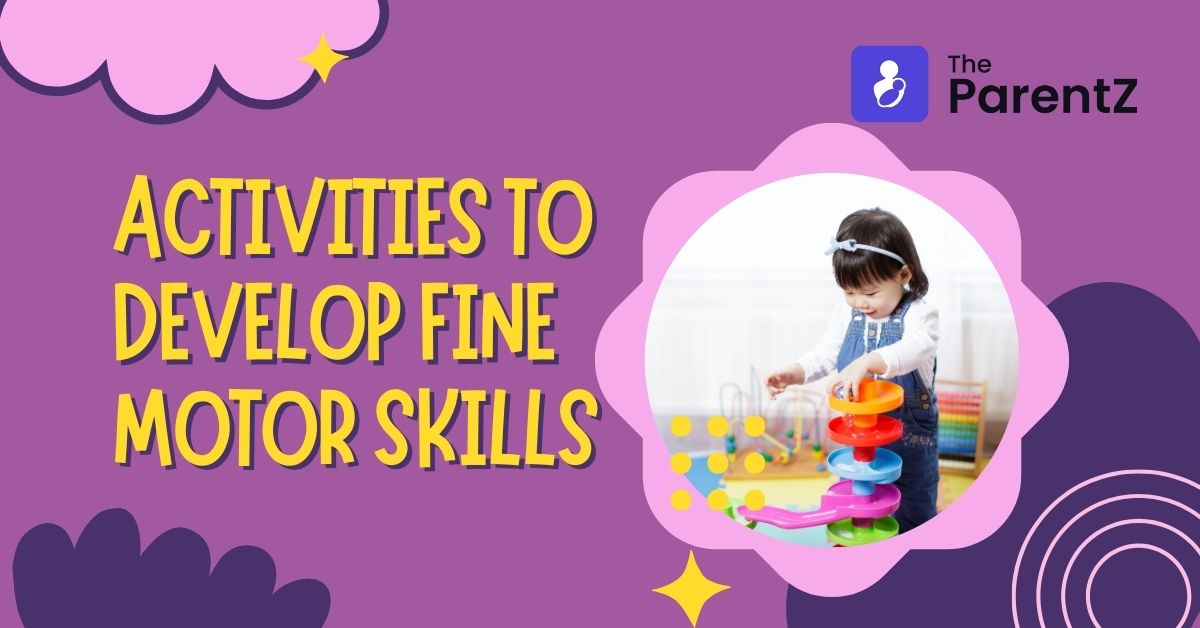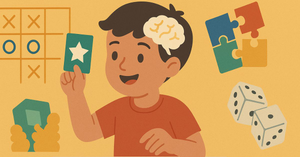Fine motor skills start developing from birth itself and follow a set pattern for all children. Though these skills develop naturally, parents and caregivers can help enhance their development and encourage it by various activities. In this article, we list a few fun and easy activities to improve the development of your child’s fine motor skills.
Why are fine motor skills important?
Fine motor skills are essential for precision and speed in all day to day activities. These include activities which are carried out with the help of smaller muscles of the finger, wrist and foot. Development of fine motor skills improves the independence of a child as they can start performing a variety of activities independently. As a child develops fine motor skills, he/she can mimic basic activities as buttoning up clothes and tying their own shoelaces.
How can parents help in the development of fine motor skills?
A child learns by mimicking the behaviour of their caregivers. Parents can encourage their child to develop fine motor skills by incorporating activities into playtime which focus more on movement of fingers, toes and wrist along with eye hand coordination. Encouraging the child to gradually increase the speed of performing tasks can also help better develop fine motor skills.
Fun activities to develop fine motor skills
Activities to develop fine motor skills are very simple and can be created using items available at home or putting together simple store-bought items. These activities can be incorporated into playtime for children which will make fine tuning of skills even more fun.
All paediatric associations around the world including WHO recommend a few hours of activities focused on developing fine motor skills.
Activities for babies and infants
– Grabbing a rattle
Babies love toys which make noise as it attracts them and keeps them engaged. Take a rattle and when your baby’s attention is on it, move it within reach of your baby. Mimic grabbing the rattle and encourage your baby to do the same.
– Playing with shaky toys
Toys which make noise or flash lights while being shaken will keep your baby engaged in playtime while also encouraging them to grab and shake objects thus providing stimulation.
– Placing toy on chest
Place a toy on your baby’s chest and encourage them to reach out and grab it. This improves eye hand coordination along with grip of the hand.
– Eating finger foods
Simple finger foods such as biscuits and cut fruits should be given to the baby(>6 month) at feed times. The baby will drop them initially but eventually learn to grip them with increased strength.
– Peeling tape
Stick a tape to walls or boards and mimic peeling it in front of your baby. Your baby will also try to do the same. Trying to hold the tape and find its edge will improve dexterity and precision.
– Making a tug toy
When the toddler starts to walk, it’s time to make a DIY tug toy. Grab a soft toy and tie a piece of lace or string around its neck. Allow the baby to hold onto the string while tugging along the toy. This is not only engaging play but also improves finger dexterity.
– Kids musical instruments
Buy musical instruments designed for children such as a guitar or a keyboard. The small keys and strings will improve precision and who knows, maybe your child will develop a taste for music.
– Box with play materials
Children are naturally curious. Take a large cardboard or wooden box and fill it with toys and other knick knacks. Allow the children to pick through them and choose their own toy. The movements involved will be a trigger for development.
– Play dough
Play with your child and make small structures and shapes with playdough. Your child will mimic your actions and improve dexterity while playing.
Activities for toddlers and older children
– Zipper play
Help your child learn how to use a zipper. Create a fun game where you ask the child to zip and unzip clothes laid out on a bed.
– Net fishing
Fill up a basin with water and use colourful marbles or any other objects to create believable fishes in the pond. Buy a small net and go fishing with your child.
– Using a clothespin
Take a couple of clothespin and a grid basket or even a clothesline rope. Create a game out of pinning them in a straight line or be creative and make shapes. This repeated action will develop strength in fingers.
– Punching holes
Using a paper punching machine, make your child punch colourful holes. The strength required for the action will gradually develop in the child’s fingers.
– Colouring within the lines
If your child loves to colour and let’s be honest who doesn’t, make it into a routine where you draw shapes and the child has to colour or water paint within the lines. This improves precision and eye hand coordination.
– Threading the needle
Take a thread and ask your child to thread an imaginary needle. Or make a small hole in a sheet and ask them to pass the thread through that. This is a great activity for precision.
Summing up:
Some babies may develop a few skills later than others but it is usually not a cause for alarm. Parents should be patient with their children and encourage these activities by positive reinforcement like appreciating and applauding them for tasks well performed. While developing fine motor skills, most activities require small objects. Be vigilant with children and make sure they do not accidently swallow or harm themselves while performing these activities.








Be the first one to comment on this story.